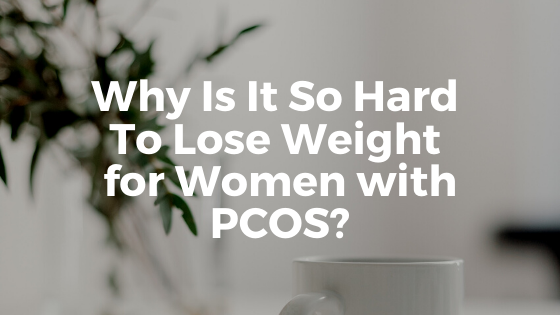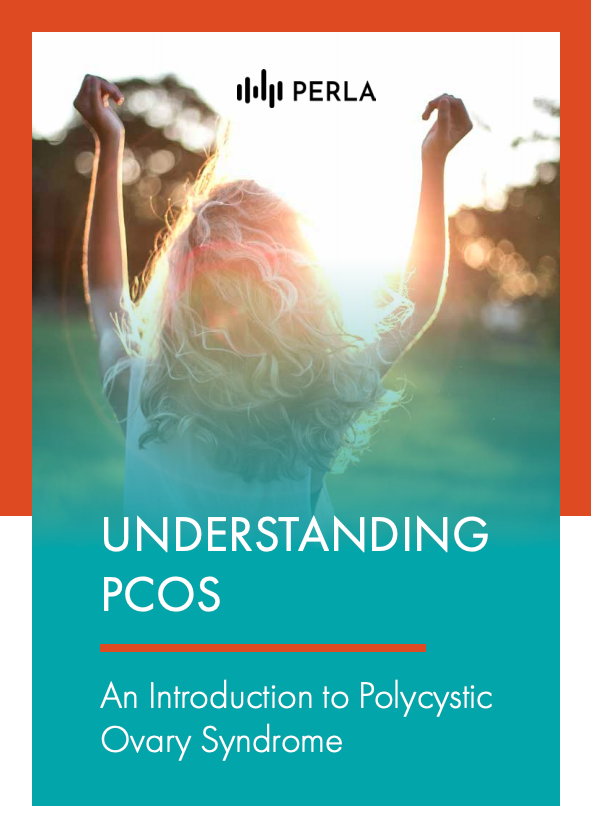You’ve probably heard it a thousand times that women with PCOS need to lose weight to improve their symptoms. If you feel that it’s easier said than done, you are not alone. It is a common observation that it is harder for women with PCOS to lose weight than those without the disorder.1,2 Why is this the case? Let’s find out more:
Losing Weight and PCOS
It is unclear if obesity causes PCOS or if PCOS predisposes women to obesity. What’s clear is that being overweight or obese makes PCOS symptoms worse. We also know that hormones, such as insulin,3 estrogen,4 and testosterone,5 play a role in weight management.
There is no one-size-fits-all approach to losing weight. With a bit of trial and error, and experimenting with different plans or approaches together with your dietician and the PCOS care team, you will soon be able to lose weight and keep it off. But first, let’s find out why women with PCOS don’t have it easy when it comes to losing weight:
You may have Insulin Resistance
Many women with PCOS have insulin resistance.6 It means their tissues, particularly the muscles and liver, are less sensitive to the effects of insulin so they require higher than usual amounts of insulin to function normally.
Poor diet, genetics, and weight gain may make insulin resistance worse. If you have insulin resistance and PCOS, you may also have high blood insulin levels. This leads to weight gain, which in turn increases insulin resistance, creating a vicious cycle.
You may be on a Restrictive Diet
Diet can impact the development and symptoms of PCOS. But, highly restrictive diets don’t work for PCOS and can even lead to weight gain.7 Currently, there is no scientific data that supports avoiding an entire food group or specific foods to improve symptoms. The only exception is when you have food intolerances (e.g., dairy, gluten, wheat, or caffeine), in which case, cutting out certain foods might make you feel better overall.
Experts recommend choosing a diet that addresses insulin resistance so counting calories is not enough. Making healthier food choices is very important. It is worth consulting a registered dietitian, who can build a PCOS diet plan tailored to your needs.
You may have increased Cravings for Carbohydrates
Many women with high androgen levels, whether they have PCOS or not, have been found to have increased cravings for carbohydrate-rich foods.8 These types of food are not only high in calories but can also worsen insulin resistance, which can lead to weight gain.
High androgens in women can also encourage the accumulation of fat in the abdominal area. That’s why when women with PCOS gain weight, they tend to gain more in the tummy region. Belly fat, also known as visceral fat, is dangerous because it increases your risk of developing serious health problems such as diabetes, heart disease, and stroke. 9,10
The Hormones that Regulate your Appetite may be Impaired
There is evidence that women with PCOS do not feel as satiated or full after meals as women without PCOS. Suppression of appetite and satiety are controlled by a number of hormones, which are said to be disrupted in women with PCOS.11 This means PCOS can make you feel hungry even if you already consumed all the calories and nutrients you need for the day.
The hormone ghrelin makes us hungry while cholecystokinin and leptin make us feel full after a meal. Some studies have found that those with PCOS have reduced secretion of the satiety hormone cholecystokinin.12 Having a disordered appetite control may play a role in the frequency of obesity, binge-eating, and other eating disorders in women with PCOS.
You may have a Slow Metabolism
It is not a myth that metabolism matters in weight loss. Those with a slow metabolism, unfortunately, do gain more weight than those with a fast metabolism. Your basal metabolic rate (BMR) is the minimum number of calories your body needs to function at rest. Your BMR is partly determined by your genes.13
In women with PCOS, particularly those with insulin resistance, the average BMR is only 1,116 calories compared to the BMR of 1,868 calories in women without PCOS.14 This suggests that women with PCOS burn significantly fewer calories than other individuals without the condition. However, a balanced diet and exercise—especially weight training and aerobic exercises—can help boost your metabolism.
Conclusion
If you have PCOS, you should know that your weight problem is not simply a result of the choices you made and didn’t make. It is not your fault. Your body doesn’t work the way it should be. The good news is it is not impossible to lose weight, though it may feel like a struggle at first. Discuss a long-term lifestyle plan with your PCOS care team if you need help with losing weight.
Sources
- Nasiri Amiri F, Ramezani Tehrani F, Simbar M, Montazeri A, Mohammadpour Thamtan RA. The Experience of Women Affected by Polycystic Ovary Syndrome: A Qualitative Study From Iran. International Journal of Endocrinology and Metabolism. 2014;12(2). doi:10.5812/ijem.13612
- Lim S, Smith CA, Costello MF, MacMillan F, Moran L, Ee C. Barriers and facilitators to weight management in overweight and obese women living in Australia with PCOS: a qualitative study. BMC Endocrine Disorders. 2019;19(1). doi:10.1186/s12902-019-0434-8
- Orbetzova MM. Clinical Impact of Insulin Resistance in Women with Polycystic Ovary Syndrome. Polycystic Ovarian Syndrome. January 2020. doi:10.5772/intechopen.90749
- Brown LM, Gent L, Davis K, Clegg DJ. Metabolic impact of sex hormones on obesity. Brain Res. 2010;1350:77-85. doi:10.1016/j.brainres.2010.04.056
- Janssen I, Powell LH, Kazlauskaite R, Dugan SA. Testosterone and visceral fat in midlife women: the Study of Women’s Health Across the Nation (SWAN) fat patterning study. Obesity (Silver Spring). 2010;18(3):604-610. doi:10.1038/oby.2009.251
- Marshall JC, Dunaif A. Should all women with PCOS be treated for insulin resistance?. Fertil Steril. 2012;97(1):18-22. doi:10.1016/j.fertnstert.2011.11.036
- Siahpush M, Tibbits M, Shaikh RA, Singh GK, Sikora Kessler A, Huang TT-K. Dieting Increases the Likelihood of Subsequent Obesity and BMI Gain: Results from a Prospective Study of an Australian National Sample. International Journal of Behavioral Medicine. 2015;22(5):662-671. doi:10.1007/s12529-015-9463-5
- Lim SS, Davies MJ, Norman RJ, Moran LJ. Overweight, obesity and central obesity in women with polycystic ovary syndrome: a systematic review and meta-analysis. Human Reproduction Update. 2012;18(6):618-637. doi:10.1093/humupd/dms030
- Visceral Fat (Active Fat) – Types of Fat, Insulin Resistance & Health Risks. Diabetes.co.uk. https://www.diabetes.co.uk/body/visceral-fat.html. Published 2011.
- Harvard Health Publishing. Abdominal fat and what to do about it – Harvard Health. Harvard Health. https://www.health.harvard.edu/staying-healthy/abdominal-fat-and-what-to-do-about-it. Published October 9, 2015.
- Sam S. Obesity and Polycystic Ovary Syndrome. Obes Manag. 2007;3(2):69-73. doi:10.1089/obe.2007.0019
- Lindén Hirschberg A, Naessén S, Stridsberg M, Byström B, Holte J. Impaired cholecystokinin secretion and disturbed appetite regulation in women with polycystic ovary syndrome. Gynecological Endocrinology. 2004;19(2):79-87. doi:10.1080/09513590400002300
- Harvard Health Publishing. Does Metabolism Matter in Weight Loss? Harvard Health. https://www.health.harvard.edu/diet-and-weight-loss/does-metabolism-matter-in-weight-loss. Accessed September 1, 2020.
- Georgopoulos NA, Saltamavros AD, Vervita V, et al. Basal metabolic rate is decreased in women with polycystic ovary syndrome and biochemical hyperandrogenemia and is associated with insulin resistance. Fertility and Sterility. 2009;92(1):250-255. doi:10.1016/j.fertnstert.2008.04.067


